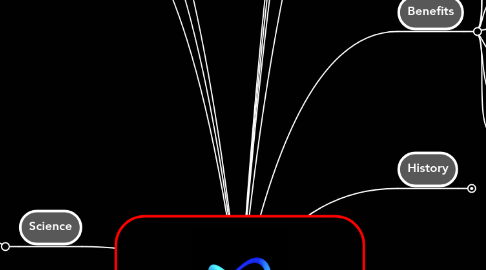
1. How to enter the ‘flow state’ for effortless creativity by Matt Davis
2. Combine chocolate with mao I (cinnamon)
3. Visualize being in flow
3.1. Address the fear
4. Science
4.1. Neuroscience
4.1.1. Transient hypofrontality
4.1.2. Exercise induced
4.1.3. Neurochemistry
4.1.3.1. Neurotransmitters
4.1.3.1.1. Pre frontal cortex
4.1.3.1.2. Dopamine
4.1.3.1.3. Norapinephrine
4.1.3.1.4. Seratonin
4.1.3.2. Endorphins
4.1.3.3. Anandamide
4.1.3.4. Cocktail released
4.1.3.4.1. Hormones
4.1.4. Neuroanatomy
4.1.4.1. Dorsolateral prefrontal cortex deactivated
4.1.4.1.1. Inner critic
4.1.4.1.2. Voice of doubt / disparagement
4.1.4.1.3. Less critical
4.1.4.1.4. More courageous
4.1.4.1.5. Abilities augmented
4.1.4.1.6. Imagine new possibilities
4.1.5. Neurobiology
4.1.5.1. Flow is product of profound changes in brain function
4.1.5.2. Brainwaves move from fast moving beta to slow borderline between alpha and theta
4.1.5.3. Alpha
4.1.5.3.1. Day dreaming
4.1.5.4. Theta
4.1.5.4.1. REM
4.1.5.4.2. Just before sleep
4.1.5.4.3. Ideas combine in radical ways
5. Research
5.1. Origin
5.1.1. Cross species communication
5.2. Articles
5.2.1. How to Enter the Flow State by Marelisa
5.2.1.1. What Is The State of Flow
5.2.1.2. The Point at Which You Hit the State of Flow
5.2.1.3. How Does It Feel to Be in the Flow
5.2.1.4. How to Achieve the Flow State
5.2.1.5. Conclusion
5.2.2. ‘Flow’ Can Help You Achieve Goals by Kendra Cherry
5.2.2.1. How Does it Feel to Experience Flow
5.2.2.2. How to Achieve Flow
5.2.2.3. Applications and Examples of Flow
5.2.2.4. The Benefits of Flow
5.2.3. Flow State: What It Is and How to Achieve It by Alayna Cherry
5.2.3.1. Nice short article
6. Gotzler
6.1. Pomodoro technique
6.2. Pavlock / self punishment
6.3. Distraction free zone
6.4. Why is the outcome important for you
6.5. Set goals
6.6. Intermittent fasting / keto
6.7. Limit resources
6.7.1. What do I need or want flow for
6.8. Binaural beats
6.9. Create a powerful morning routine
7. Pattern recognition with risk taking
7.1. Equal participation & skill level
8. Immediate feedback
9. Increased happiness
10. Definition
10.1. Optimal state of consciousness, a peak state, where we both feel our best and perform our best
10.2. Being in "The Zone"
10.3. The most desirable state on earth?
10.3.1. Most elusive
10.3.2. Except for adventure atheletes
10.4. Stella Grizont
10.4.1. The experience of complete absorption in a particular endeavor
10.4.2. “True engagement is when we are so lost in the task at hand that we lose a sense of time and space. We even forget ourselves, our ego [and its] ruminations.”
11. Benefits
11.1. Creativity
11.1.1. Most important skill
11.1.1.1. Partnership for 21st century skills
11.1.1.1.1. 250 researchers at 60 institutions
11.1.1.2. Global survey of 1500 top execs by IBM of most desirable qualities in CEO
11.1.2. Australia study
11.1.2.1. Tricky brain teaser
11.1.2.2. No one solved
11.1.2.3. Transcranial stimulation
11.1.2.3.1. 23 solved in record time
11.1.3. Harvard study
11.1.3.1. Teresa Amiable
11.1.3.2. People are more creative in flow and after
11.1.3.3. Trains us to be more creative
11.1.4. Theta state
11.2. Increased productivity
11.2.1. McKinsey study
11.2.1.1. 10 years
11.2.1.2. Found top execs 500% more productive in flow
11.3. Accelerated learning
11.4. Motivation
11.5. Overcoming fear
11.6. Improved performance
11.6.1. Physical
11.6.2. Mental
11.7. Better sleep
11.7.1. Rest / recovery ?
12. History
12.1. Mihaly
12.1.1. Largest psychological surveys ever in 1970s
12.1.1.1. Questioning about best
12.1.1.1.1. Performance
12.1.1.1.2. Feeling
12.1.1.2. Started with experts
12.1.1.2.1. Chess
12.1.1.2.2. Surgeons
12.1.1.2.3. Dancers
12.1.1.3. All walks of life
12.1.1.3.1. Italian farmers
12.1.1.3.2. Navajo sheepherders
12.1.1.3.3. Chicago assembly line workers
12.1.1.3.4. Elderly Korean women
12.1.2. Ability vs challenge framework
12.1.2.1. 2
12.1.3. Flow test
13. What is Flow
13.1. Subset
13.1.1. Non Ordinary States of Consciousness
13.1.1.1. Types
13.1.1.1.1. Dreams
13.1.1.1.2. Trance
13.1.1.1.3. Possession
13.1.1.2. Functional
13.1.1.2.1. Optimal
13.1.1.2.2. Those states or experiences which take us out of ourselves
13.1.1.3. Disfunctional
13.1.1.3.1. Mental illnesss
13.2. Ecstasis
13.3. Experience STER
13.3.1. Selfnessness
13.3.1.1. Reboot for nervous system / psychology
13.3.1.2. Inner critic
13.3.1.3. Neurosis
13.3.1.4. Provides objective experience of subjective life
13.3.1.4.1. Subject object shift
13.3.1.4.2. Robert Keegan
13.3.1.5. Monkey suit
13.3.2. Timelessness
13.3.2.1. Montessori
13.3.2.1.1. 3 hours
13.3.3. Effortlessness
13.3.3.1. Pain relief
13.4. Richness
13.4.1. Insight connection innovation outpaced
13.4.2. Heightened pattern recognition
13.4.3. Lateral thinking
13.5. Characteristics
13.5.1. Complete concentration on a task
13.5.2. Clarity of goals, immediate feedback, and a reward in mind
13.5.3. Transformation of time (speeding up or slowing down of time)
13.5.4. Intrinsically rewarding experience – an end in-and-of itself
13.5.5. Effortlessness and ease
13.5.6. Balance between challenge and skills
13.5.7. Actions merge with awareness — a loss of self-conscious rumination
13.5.8. Feelings of control over the task
13.5.9. Subjective feeling
13.5.9.1. Senses heightened
13.5.9.2. Concentration laser focused
13.5.9.2.1. Everything else falls away
13.5.9.3. Action and awareness merge
13.5.9.4. Sense of self disappears
13.5.9.4.1. Self consciousness
13.5.9.5. Time distortion
13.5.9.5.1. Slows down
13.5.9.5.2. Speeds up
13.5.9.6. All aspects of performance are heightened
14. Sort
14.1. Overthinking
14.1.1. Pre frontal cortex
14.2. Time periods
14.2.1. Long term
14.2.2. Short term
14.3. Focus
14.4. Midpoint between boredom and anxiety
14.5. Addictive
14.5.1. Autotelic
14.6. Happiness
14.6.1. Aristotle conclusion
14.6.2. What people want more than anything
14.7. Extreme situational awareness
14.7.1. How to get if?
14.7.1.1. Pay more attention
14.8. Skills
14.8.1. Automized
14.8.2. 3-4
14.9. Hyper ergonomics
14.9.1. No friction
14.9.1.1. Intention
14.9.1.2. Action
14.9.2. How to get it
14.9.2.1. Work out the kinks
14.10. Feel the force don’t force the feel
15. 17 Triggers
15.1. Accelerate / catalyze entrance into flow states
15.2. 4 Psychological
15.2.1. Intensely focused attention
15.2.2. Clear goals
15.2.3. Challenge : Skills ratio
15.3. 3 Environmental
15.3.1. High consequences
15.3.2. Deep embodiment
15.3.3. Rich environment
15.4. Sense of control
15.5. 9 Social
15.5.1. Serious concentration
15.5.2. Shared, clear goals
15.5.3. Good communication
15.5.4. Familiarity
15.5.5. Risk
15.5.6. Close listening
15.5.7. Always say yes
